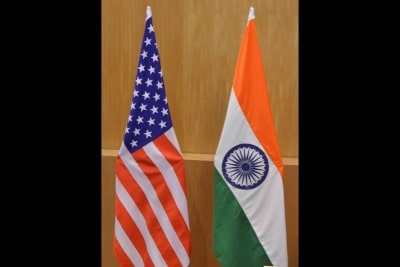
New Delhi — India is expected to finalise an interim trade agreement with the United States as early as this week to avoid proposed tariff hikes on its exports by President Donald Trump, according to a Financial Times report.
India’s negotiating team, led by Special Secretary Rajesh Agarwal, is currently engaged in high-level discussions in Washington to conclude the trade agreement.
The report also stated that External Affairs Minister S. Jaishankar is expected to hold bilateral talks with his US counterpart, Secretary of State Marco Rubio, on Tuesday or Wednesday, on the sidelines of a scheduled meeting in Washington.
The interim agreement is seen as a stepping stone toward a more comprehensive free trade agreement between the two countries.
Negotiators from both sides are working to conclude the interim deal before the July 9 deadline. President Trump had earlier announced a 90-day pause on new tariffs targeting Indian exports, giving both sides time to resolve key trade issues.
Following the interim agreement, negotiations will continue for a broader, long-term trade deal, which officials hope to finalise by September or October.
One of the key sticking points remains US demands for greater market access for its agricultural and dairy products. However, this is considered a sensitive issue for India, where millions of small farmers depend on the sector for their livelihoods.
India may consider allowing select agricultural imports, such as almonds, which already have a significant presence in the Indian market. In return, New Delhi is expected to push for improved access to the US market for Indian seafood products like shrimp and fish, along with spices, coffee, and rubber — sectors where Indian exporters are highly competitive but face tariff barriers in the American market.
India has already increased its imports of oil and gas from the US to help narrow the trade surplus and has indicated its willingness to expand energy purchases further.
Additionally, India has proposed significant tariff reductions — potentially cutting average duties from 13% to 4% — in exchange for exemptions from US tariff hikes imposed during the Trump administration. These offers are similar to the concessions India made in its recent free trade agreement with the United Kingdom.
India is also pushing for greater market access for industrial goods, including steel, aluminium, auto components, and pharmaceuticals. The recent decision by the US to double safeguard duties on steel and aluminium imports to 50% has severely impacted Indian exports. Although India has raised the issue at the World Trade Organization (WTO), it hopes to resolve the dispute through the upcoming bilateral agreement.
Trade between India and the US reached $129 billion in 2024, with India recording a trade surplus of $45.7 billion.
Earlier this year, during Prime Minister Narendra Modi's visit to Washington, he and President Trump jointly announced Mission 500, an ambitious initiative aimed at doubling bilateral trade to $500 billion by 2030.
With inputs from IANS